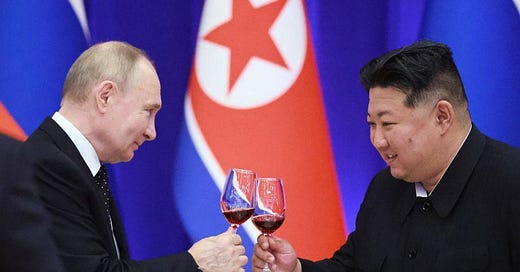The Shifting Sands of Global Power
We ask is a new world order emerging? Is the end of US dominance a bad thing?
The global landscape is profoundly transforming as we delve deeper into the 21st century. The long-standing dominance of the United States on the world stage, a cornerstone of international relations since the end of World War II, is facing an unprecedented challenge. This isn't merely a changing of the guard; it's a fundamental restructuring of the int…
Keep reading with a 7-day free trial
Subscribe to Cymposium to keep reading this post and get 7 days of free access to the full post archives.




